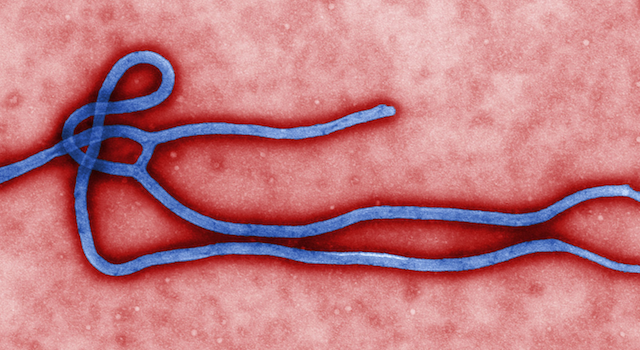There have been reports of an outbreak in the Ebola virus in Guinea (west Africa) with 62 people currently dead as result of contracting it. It has also been reported that the virus has spread to neighbouring Liberia and Sierra Leone, although at this point these are only suspected cases. There was also an isolated case in Saskatchewan, Canada where a man returning from Liberia has been placed in solitary confinement as he was showing symptoms of the disease.
All governments are remaining tightlipped over the actual spread of the virus and whether it is Ebola or not for obvious reasons and fear of a worldwide outbreak of the virus, which has no known vaccines or cures and kills between 25 – 90% of its victims depending on the strain. They also seem to be doing everything they can to prevent it spreading. Medecins Sans Frontieres have set up two quarantine sites in Sierra Leone to stop its spread and the World Health Organisation is helping them out there too.
People who have crossed the border to Liberia and Sierra Leone – believed to be seeking treatment for the virus – have been quarantined and investigated to determine whether they have contracted it or not, as has the guy in Canada. The Canadian man has now tested negative for Ebola, but we are still waiting on the results of the cases in the African countries. It’s quite possible that it may be another tropical disease such as malaria, Lassa fever or the Marburg virus as they all share similar symptoms.
In addition to this, in order to combat the spread of the Ebola virus, the Guinean government has banned the sale and consumption of bats – which are served as a delicacy in the country – as it was believed that these were the ‘main agents’ of the outbreak over there. Bats found in west and central Africa (where there have been other recent outbreaks in Uganda and the Democratic Republic of Congo) are believed to be the ‘natural reservoir’ of Ebola, although they show no symptoms of it.
The disease can also be spread via fruit bats, human to human contact (including blood, sweat, feces, sexual contact and the handling of contaminated corpses) and other infected animals such as chimpanzees, gorillas, monkeys, forest antelope and porcupines found dead or ill in the rainforest.
☛ More Diseases: The Ten Weirdest Diseases On The Planet

If all this talk about Ebola has got you worried about a possible worldwide outbreak though you needn’t fret. At least not according to Dr Jay Keystone, an expert travel physician and professor at the University of Toronto’s department of medicine. He says that although the fact 90% of people who contract the Ebola disease die is a worrying statistic, the fact that only 2000 people have died from it since its first emergence in the 1970s is evidence that a worldwide contagion is unlikely. This is because, quite simply, everyone who contracts the disease dies before it can be spread too far which makes any potential outbreak easy to contain. That’s grim but you know, phew.
In case you didn’t know, Ebola causes a viral hemorrhagic fever that pretty much means you’re fucked. You’ll puke, have diarrhoea, headaches, chills, chest pains, fever and internal and external haemorrhaging all over your body. Bleeding can occur from the eyes, ears, nose, mouth and rectum and internal bleeding will lead to bruising all over the body too. Death occurs due to multiple organ dysfunction syndrome which happens as a result of all this. It usually takes about 2-21 days for the infected to start showing symptoms and in most cases the time of death following the onset of symptoms is between one and two weeks.
In short, you’re messed up and probably going to die and it’s going to be really painful and gross if you get it. Try not to get it. So make sure you avoid bats if you’re visiting Africa any time soon.
☛ More Viruses: Virus Revived After 30,000 Years On Ice















